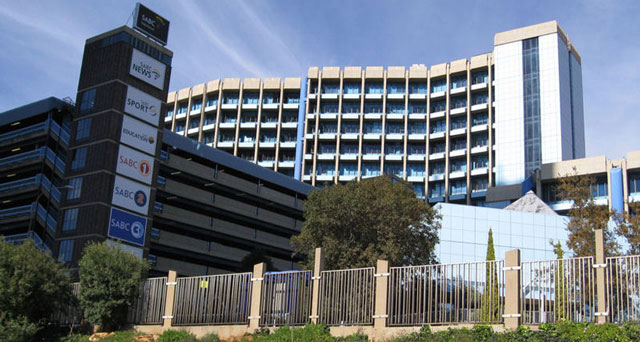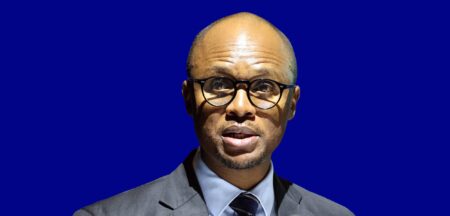
Sunshine will soon officially move from the weather report into the news bulletins at the SABC — and there will be at least 70% of it. The SABC’s acting chief operating officer Hlaudi Motsoeneng has hit the campaign trail and is seeking the public support needed to ensure it is written into the corporation’s new editorial policies that 70% of the stories on its news bulletins should be positive.
The public broadcaster is currently reviewing its editorial code and policies that shape the content on its television and radio services. The process involves public participation and nationwide public hearings, and Motsoeneng said he found much support for his controversial news drive.
“I still stand by what I said and I want it to go into the editorial policies that 70% of the news should be positive. I think I am going to get it,” he told the Mail & Guardian this week. “People support the good news, not negative. Many people realise the importance of having good news.”
Motsoeneng has come under heavy fire from media pundits who accuse him of promoting “sunshine journalism” — a drive away from negative, controversial stories — after he disclosed in August that he is championing the move.
It is not the first time the top executive has made headline news, as his reign at the SABC has been mired in controversy. Motsoeneng has been widely criticised for not having obtained a matric and has endured the embarrassment of being fired by the previous SABC board. But he is not easily flustered and told the M&G he never left his office.
He has also been accused of censorship because he withdrew an advert and programmes he felt might offend president Jacob Zuma.
His latest push for positive news led Media Monitoring Africa to say this goes “beyond controversial”. Instead, the watchdog body suggested it raised fundamental questions about who is running the show at the SABC, as well as critical issues about editorial independence.
Motsoeneng is undeterred by the criticism and is now spearheading the drive to gain public support for his quota of positive news to be written into the SABC’s editorial policies. He admitted that not all the SABC journalists are happy about it.
Although the executive has instructed staff that 70% of news stories on bulletins should be positive and 30% negative, he said he also wants journalists to look for the positive in the negative stories.
“The journalists must look for the police officers who have helped fight crime, for example. The reason I am championing this is because, if you only talk about the negative, people can’t even try to think because their mind is all occupied with this negative stuff.
“If I can make a difference I feel good. I think I have done that at the SABC.”
The public’s input will be handed to the new SABC board in December and a revised editorial code and policies document will be released for public comment before being finalised. This document serves as a guideline for decision-making on content carried on SABC services.
The government has been accused of having too much sway over the selection of the new SABC board and Motsoeneng’s push for positive news already appears to have found favour with Zuma.
The president attacked the media during an address to students visiting parliament last month, just weeks after Motsoeneng disclosed his sunshine news plans. Zuma said reporting is so negative in South Africa that he feels like fleeing the country at times.
When he was still a deputy president, he visited Mexico and his delegation was warned not to go into some areas because of rampant crime.
“Why don’t I read about this [crime] in the media because, in my country, you read about everything,” he had asked. Zuma said he was told that people were patriots and wanted Mexico to succeed. People told him: “We market Mexico and we cannot market Mexico negatively. We can’t wash our dirty linen in public. Otherwise, if we said there was huge crime, people wouldn’t come to invest in this country.”
However, the editorial director of one of Mexico’s daily newspapers, El Siglo de Torreon, Javier Garza, said Zuma’s call for South Africa to emulate Mexico’s “patriotic reporting” showed he was ill-informed.
“Mexico’s media outlets avoid covering crime and violence in their communities not because of a patriotic duty but because of threats and aggression unleashed against them by criminal organisations that authorities have been unable to stop,” he wrote in a letter published in the M&G.
“The kidnapping and murder of journalists, as well as armed attacks against the offices of media organisations, have grown in Mexico in the past decade, and the impunity enjoyed by the perpetrators only guarantees that the attacks will continue.”
Motsoeneng said he did not want to discuss what Zuma had said about Mexico and laughed off suggestions that he might have consulted the president on the issue of positive news. “I don’t go and meet with the president,” he said. “I see him at functions and we greet.”
But the desire for positive reporting is fast gaining momentum among politicians, he said.
An SABC team has attended public meetings in Gauteng, the North West and Free State. They are urging all stakeholders to participate in shaping its newly launched 24-hour satellite news channel by telling the broadcaster about positive and other news events in their provinces. Public participation continues this month in Mpumalanga and the Western Cape.
“Everyone I have consulted so far, including political parties, traditional leaders and some of the print media, have felt positive about what I am championing,” Motsoeneng said. “The majority is saying they are behind me on the need for more positive news.” — (c) 2013 Mail & Guardian
- Visit the Mail & Guardian Online, the smart news source




